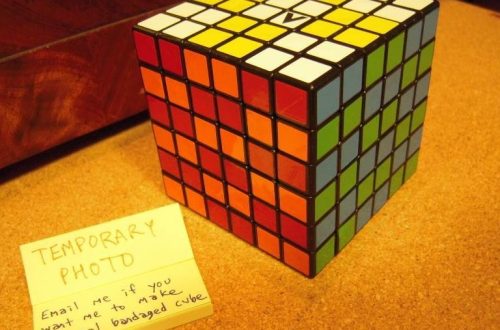Part 1: Introduction to Logic Puzzles for Middle School
Logic puzzles are an excellent way to engage middle school students in critical thinking and problem-solving. These mind-bending challenges require students to use deductive reasoning and logical analysis to solve complex problems. By tackling logic puzzles, students can improve their cognitive abilities, decision-making skills, and attention to detail. In this article, we will explore the benefits of incorporating logic puzzles into the middle school curriculum and provide strategies for educators and students to approach these challenges effectively.

Part 2: Benefits of Logic Puzzles for Middle School Students
1. Enhances Critical Thinking:
Logic puzzles foster critical and analytical thinking in middle school students. Working through clues and applying deductive reasoning develops their ability to evaluate information, make inferences, and draw logical conclusions. These essential skills are beneficial for academic success and applicable to real-world problem-solving. Logic puzzles promote critical and analytical thinking. Middle school students develop deductive reasoning skills. They evaluate information and draw conclusions. These skills are crucial for academic success and real-world problem-solving. Logic puzzles encourage students to think critically and analytically. By working through clues and applying deductive reasoning, students develop their ability to evaluate information, make inferences, and draw logical conclusions. These skills are essential for academic success and can also be applied to real-world problem-solving scenarios.
2. Fosters Perseverance and Resilience:
By solving logic puzzles, middle school students develop patience and perseverance. They learn to tackle complex problems systematically, persisting through challenges and setbacks. This fosters a growth mindset, teaching students that perseverance leads to success and failure is an opportunity to learn and improve. Through solving logic puzzles, students learn patience and perseverance. They tackle complex problems systematically, persisting through challenges. This fosters resilience and a growth mindset. It teaches students that perseverance leads to success and that failure is an opportunity to learn and improve. Solving logic puzzles requires patience and perseverance.

Middle school students learn to tackle complex problems systematically, persisting through challenges and setbacks. This fosters resilience and a growth mindset, teaching students that perseverance leads to success and that failure is an opportunity to learn and improve.
Part 3: Strategies for Educators to Incorporate Logic Puzzles
1. Integrate Puzzles into the Curriculum:
Educators have the opportunity to integrate logic puzzles into subjects like math, language arts, and science. Introducing these puzzles into lesson plans engages students in hands-on, interactive learning experiences, reinforcing essential concepts and skills. By incorporating logic puzzles into various subjects, such as math, language arts, and science, educators provide hands-on, interactive learning experiences for students. This integration reinforces essential concepts and skills. Educators can incorporate logic puzzles into various subjects, such as math, language arts, and science. By integrating these puzzles into lesson plans, teachers can engage students in hands-on, interactive learning experiences that reinforce essential concepts and skills. Ultimately, incorporating logic puzzles into different subjects can enhance student engagement and reinforce essential concepts and skills across the curriculum.

2. Provide Differentiation:
Understanding that students possess diverse problem-solving skills, educators can provide logic puzzles of various difficulty levels. This inclusive approach ensures all students can participate and be challenged according to their individual abilities, fostering personalized learning experiences. By offering logic puzzles with different difficulty levels, educators cater to the diverse problem-solving abilities of their students. This strategy promotes inclusivity and ensures that all students can engage in the puzzle-solving process at a level that suits their skills. Recognizing that students have varying levels of problem-solving abilities, educators can offer logic puzzles with different difficulty levels. This approach allows all students to participate and be challenged at their individual skill level, promoting inclusivity and personalized learning experiences. Ultimately, providing logic puzzles with varying difficulty levels creates a supportive and inclusive learning environment, allowing each student to engage in meaningful and challenging problem-solving tasks.
Part 4: Tips for Middle School Students to Tackle Logic Puzzles
1. Read the Clues Carefully:
When solving logic puzzles, middle school students should carefully read and analyze each clue provided. Identifying key information and understanding the relationships between different elements are crucial steps in effectively solving logic puzzles. This analytical approach helps students develop problem-solving and critical-thinking skills. By carefully reading and analyzing each clue, students can identify key information and understand the relationships between elements. This process enhances their ability to solve logic puzzles effectively. Middle school students should carefully read and analyze each clue provided in the puzzle. Identifying key information and understanding the relationships between different elements are crucial steps in effectively solving logic puzzles. Ultimately, this careful analysis and understanding of the clues are essential for successful logic puzzle-solving, providing students with valuable critical-thinking skills.

2. Use Trial and Error:
Encouraging students to employ trial and error enhances their problem-solving skills. While deductive reasoning is crucial, experimentation can help students refine their approach and consider alternative solutions. Employing trial and error offers students a hands-on approach to problem-solving. It allows them to test different combinations and deductions. While deductive reasoning is vital in logic puzzles, experimentation can also help students refine their problem-solving approach and consider alternative solutions. Encouraging students to use trial and error to test different combinations and deductions can enhance their problem-solving skills. While deductive reasoning is important, experimentation can help students refine their approach and consider alternative solutions. Ultimately, allowing students to use trial and error offers a valuable learning experience, helping them develop creative problem-solving strategies.

In conclusion, logic puzzles provide middle school students with an engaging and effective platform to develop critical thinking, problem-solving, and resilience. Integrating these mind-bending challenges into the curriculum, along with offering effective strategies for educators and students, helps middle schoolers enhance their cognitive abilities and prepares them for future academic and real-world challenges. Ultimately, logic puzzles offer middle school students an engaging and effective way to develop critical thinking, problem-solving, and resilience. By incorporating these mind-bending challenges into the curriculum and providing effective strategies for educators and students, middle school students can enhance their cognitive abilities and prepare themselves for future academic and real-world challenges. In conclusion, logic puzzles offer middle school students an engaging and effective way to develop critical thinking, problem-solving, and resilience. By incorporating these mind-bending challenges into the curriculum, middle school students can enhance their cognitive abilities. It also provides effective strategies for educators and students.

